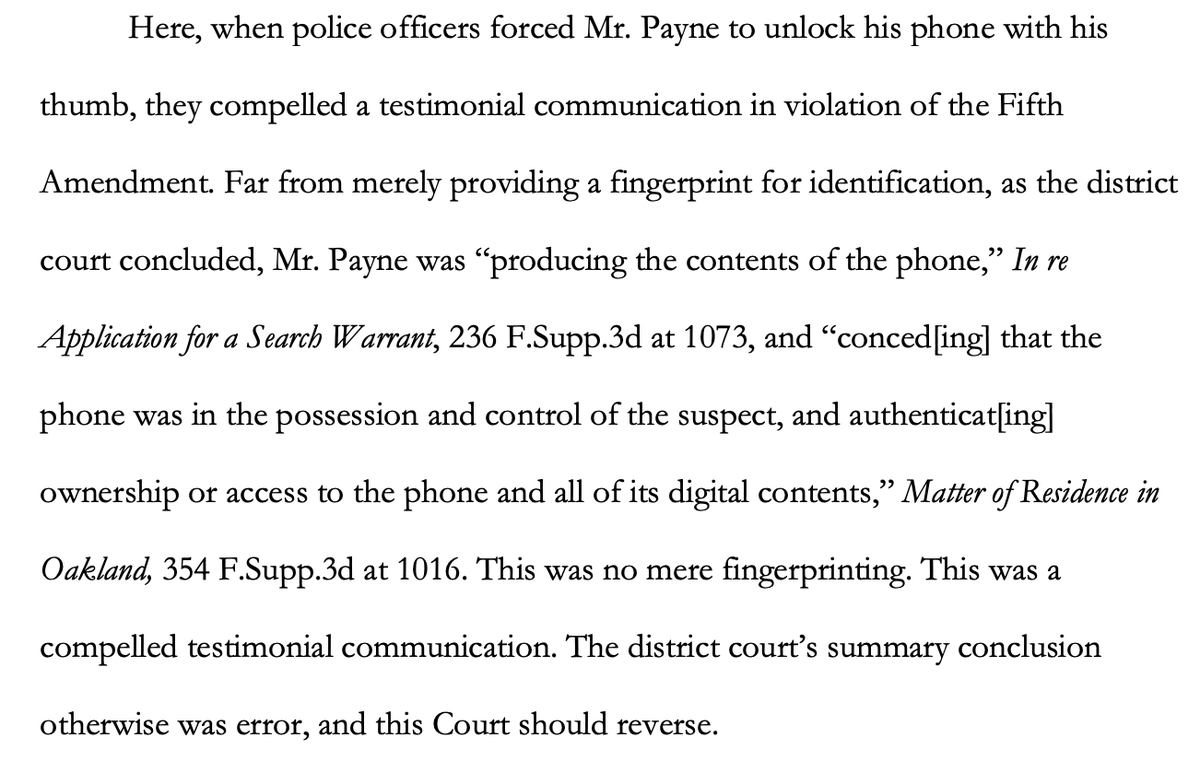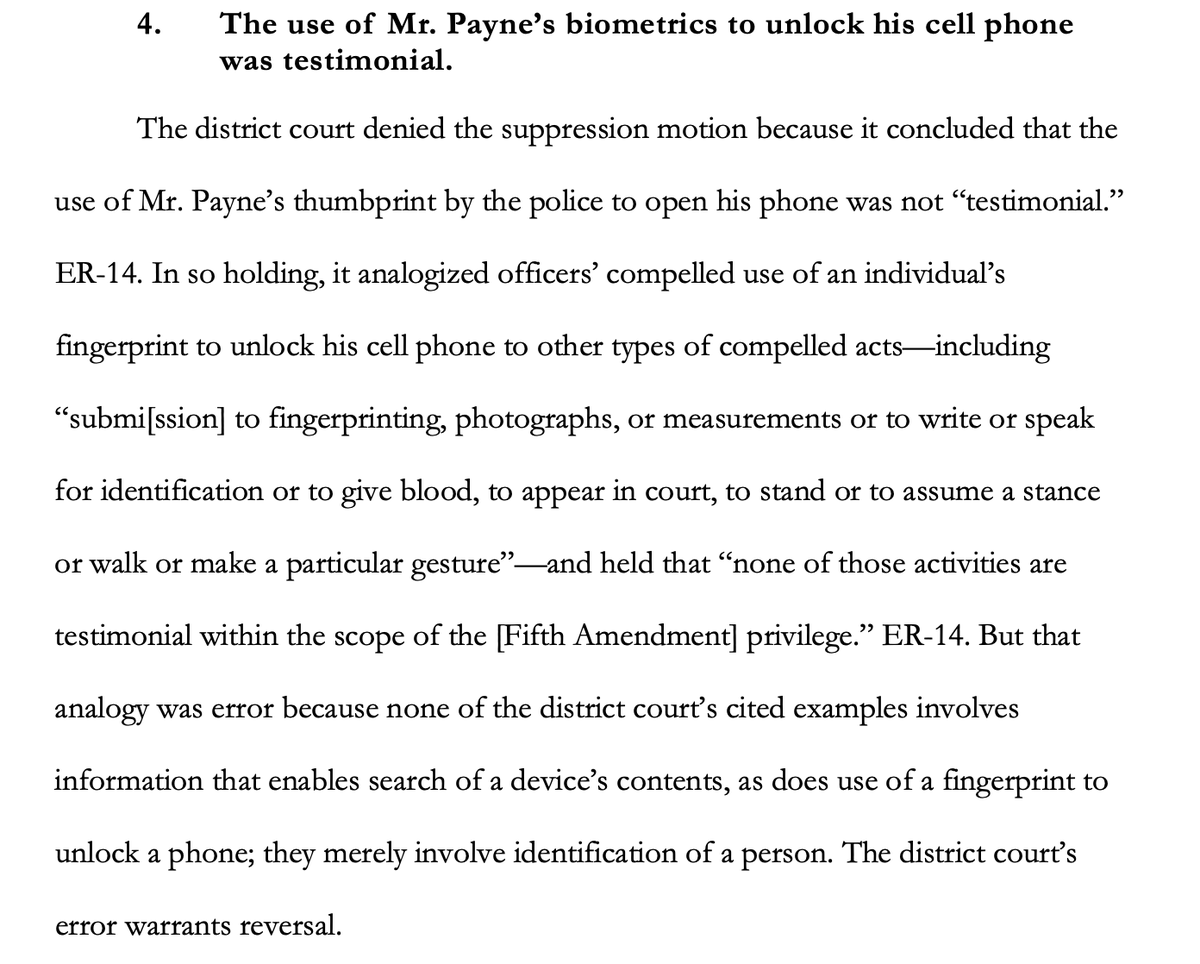Officer watches video w/image below, in which suspect brings object into home, & gets warrant to search "based on my training and experience as a police officer" that object is a gun.
Judge: Um, that's a bouquet of flowers. Motion to suppress granted.
drive.google.com/file/d/13bCndn… #N
Judge: Um, that's a bouquet of flowers. Motion to suppress granted.
drive.google.com/file/d/13bCndn… #N

@Anna_Lvovsky To be clear, the image was not included in the warrant application; only the officer's description was. Judge Brown then granted the motion to suppress under Franks v. Delaware, for recklessly misrepresenting what was visible in the video.
From the opinion:
From the opinion:

Pro-Tip: If you're going to get a warrant based on what you think is in a video, and you were sent a high-quality version of the video that you're having trouble opening, find a way to open the file before you get the warrant. 

This case is arguably another example of how video is changing 4th Amendment law. The officer here characterized a video, not what he saw live; the reviewing judge could go to the video to see if the officer was being accurate.
More:
reason.com/volokh/2022/12…
More:
reason.com/volokh/2022/12…
And yes, the magistrate judge should have required the officer to include screenshots from the video in the warrant application. Unsurprisingly, this was a state case.
• • •
Missing some Tweet in this thread? You can try to
force a refresh

 Read on Twitter
Read on Twitter









